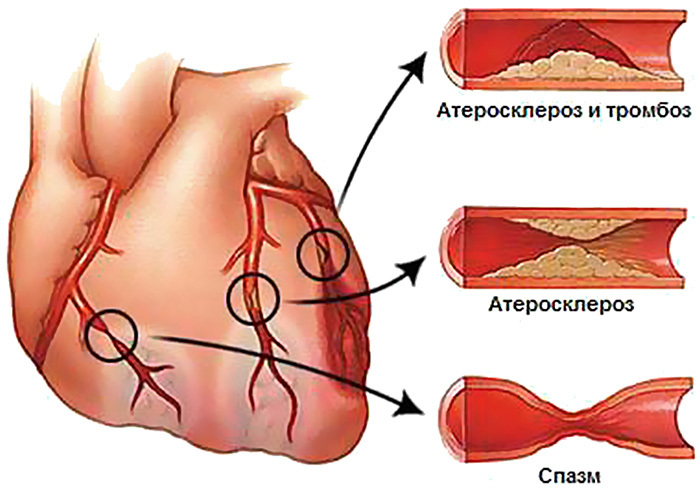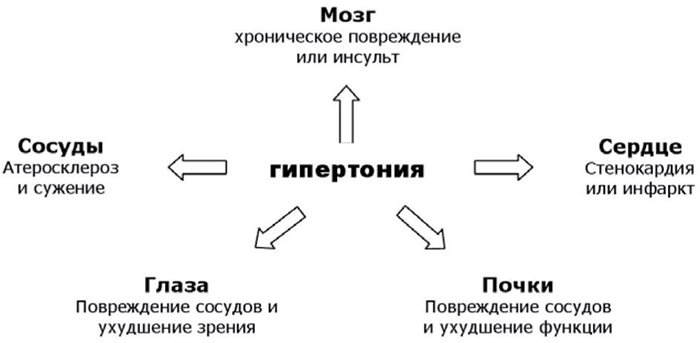Heart palpitations: reasons to do
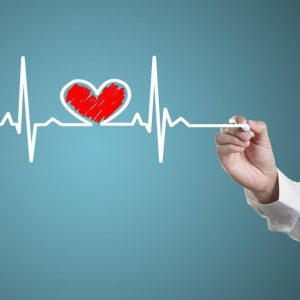
Normally, an adult's heart is contracted 70-90 times per minute. More frequent heartbeats are called tachycardia. This condition can have both physiological and pathological character - many diseases( and not only cardiac ones) are accompanied by rapid heart rate.
Table of contents: Causes of rapid heartbeat Diseases in which the heart beats more often What is dangerously heart palpitations?What to do with heart palpitations Tachycardia examination Principles of treatment of rapid heartbeatCauses of heart palpitations
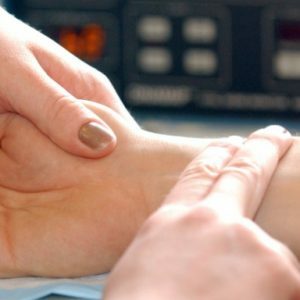 The heart is the main organ of the cardiovascular system .It, like a pump, pumps blood through the vessels, providing supply to tissues of oxygen, energy and building material, hormones and other biologically active compounds.
The heart is the main organ of the cardiovascular system .It, like a pump, pumps blood through the vessels, providing supply to tissues of oxygen, energy and building material, hormones and other biologically active compounds.
If a person is healthy and calm, his heart makes 70-90 cuts per minute and covers the needs of every cell of the body. If the pathological process develops in the body, the heart immediately reacts with the increase or decrease in the contractions.
Because of this, doctors always determine the heart rate( it corresponds to the heart rate) when examining patients - this is the easiest way to evaluate the functionality of the heart.However, as mentioned above, the cause of tachycardia is not always a pathological process, quite often in adults there is a so-called physiological tachycardia. The main reasons for the physiological increase in heart contractions include:
- Emotional overstrain and stresses .Stressful situations are always accompanied by an increased synthesis of biologically active compounds.These substances make the heart beat faster.As soon as the hormonal background returns to normal, the heartbeat normalizes.
- Physical stress. Working muscles need more oxygen and energy, so the body gives the heartbeat signal to beat faster and it beats.
- Overeating .A full stomach poddavlivaet heart and lungs, so there is shortness of breath and tachycardia.
- Pregnancy. Many future mothers in the first months of waiting for the baby suffer from low blood pressure, which can lead to rapid heart rate.
- Climax . Tides, tachycardia, dizziness - these are the most frequent companions of the climacteric period.
- Environmental Impact. The heart begins to contract faster in conditions of high temperature and lack of oxygen, for example, in a stuffy room or in transport.
- Drinking beverages with caffeine .Caffeine is a powerful stimulant, including cardiac activity.A few cups of strong coffee, drunk in a row, can make the heart beat 100 or more times per minute.
- Increased body temperature .Each extra degree of body temperature is about 10 heartbeats.Accordingly, a person with a violent fever( more than 39 degrees), palpitation can reach a rate of 120 per minute or more.
Diseases in which the heart beats more often
Now consider the causes of pathological tachycardia.They are divided into two groups:
- Extracardial - not related to the heart.
- Intracardial - all kinds of cardiac pathologies.
The following reasons relate to extracardiac:
-
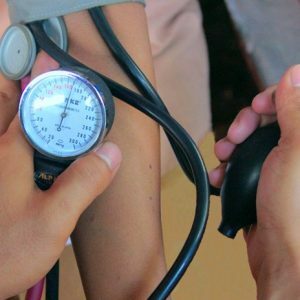 Anemia .With anemia, blood carries tissues with insufficient oxygen, so the heart reflexively begins to contract faster, trying to fill this deficit.
Anemia .With anemia, blood carries tissues with insufficient oxygen, so the heart reflexively begins to contract faster, trying to fill this deficit. - Hypovolemia is a significant decrease in circulating blood in the body.The blood is less, therefore, it should pass the circulatory system more often, so the pump that pumps it should decrease more quickly.
- Hypovolemic condition is most often result of acute blood loss , which can not always be seen.Therefore, the appearance of a patient's tachycardia can indirectly indicate a hidden internal bleeding.
- Hypotonia - reduction of pressure in the arteries.
- Hyperthyroidism is an excessive synthesis of hormones by the thyroid gland.
- Respiratory failure .The mechanism of development of tachycardia in this pathology is similar to that of anemia.
- Vegetative disorders .The activity of the heart, like all other internal organs, is regulated by the autonomic nervous system.If it fails, the functioning of the organism is impaired.Clinically, this is manifested by tachycardia, increased or decreased pressure, dyspnea, panic attacks, gastrointestinal disorders and a host of other symptoms.
- Side effects of some medicines .
Intracardial causes of rapid heart rate are not so numerous, but it is much harder to affect them in most cases. For cardiac reasons, tachycardias include:
- Heart failure.
- Angina pectoris.
- Cardiomyopathy.
- The extreme degree of ischemia of the heart muscle is myocardial infarction.
- Heart defects.
- Hypertensive disease.What is dangerous heart palpitations?
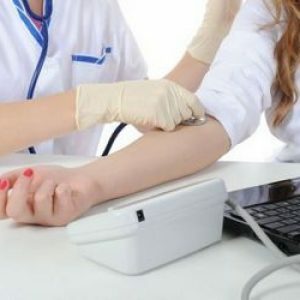 If the heart rate becomes less frequent and then under the influence of various physiological factors, you should not worry - there will be no malfunctions in the functioning of the body. If the tachycardia occurs frequently and lasts a long time, sooner or later the problems will necessarily begin.
If the heart rate becomes less frequent and then under the influence of various physiological factors, you should not worry - there will be no malfunctions in the functioning of the body. If the tachycardia occurs frequently and lasts a long time, sooner or later the problems will necessarily begin.
If the contraction is too frequent, the heart is not completely filled with blood, therefore, for one cardiac ejection, it is less likely to enter the bloodstream.That is, heart activity gradually becomes inadequate - the heart can not perform its function to provide the body with oxygen and nutrients, and all tissues begin to suffer from it.
The first shortage of oxygen is felt by the brain and the heart muscle ( it is supplied by the arteries that depart from the aorta).And, the more pronounced the tachycardia, the more myocardium is heavier: he has to work more actively, therefore more oxygen is needed, but he is not.Therefore, in such blood supply conditions, significantly increases the risk of acute myocardial ischemia - infarction.
What to do with rapid heartbeat
First of all, you need to sit down, calm down, drink water.If the heartbeat does not return after 10-15 minutes, you should consult a therapist or cardiologist. If the heart palpitations are accompanied by pain in the chest, a feeling of "lack of air", pronounced weakness, it is better to immediately call an ambulance.
Before arriving physicians, you need to do the following:
-
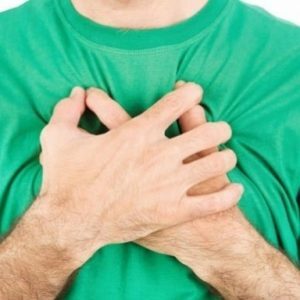 Open the window so that there is a constant supply of fresh air.
Open the window so that there is a constant supply of fresh air. - Wash with cold water.You can put ice wrapped in a towel on the forehead or occiput.
- Sitting or lying down.On the legs can not be left, in this position the heart beats a little faster.In addition, there is a risk of falling and traumatizing.
- Loosen the necktie, unfasten the collar.
- Place a tablet of Validol under your tongue, or take Corilol, Valerian, as instructed.
- Close your eyes and lightly press on the eyeballs.Deeply inhale and try to strain as if in a toilet.These methods are called vagal tests.They are effective for certain types of tachycardia.
People suffering from tachycardia should always carry the medications prescribed to them by the doctor for relief of seizures.
To determine the cause of heart palpitations, the patient should consult a cardiologist and undergo a comprehensive examination:
- . Make an ECG, an ultrasound of the heart and a chest x-ray.
- To donate blood for general, biochemical tests and for thyroid hormones.
- Visit the neurologist and endocrinologist .
In controversial cases( when the patient has complaints, and all analyzes and studies are in relative norm), Holter monitoring may be required - daily ECG recording.This method of diagnosis allows you to catch attacks of tachycardia, which are not always detected during a visit to a medical institution.
Principles of treatment of heart palpitations
Physiological tachycardia usually passes by itself. But the tactics of treating a pathological rapid heart rate is determined by the cause of this condition.In some situations( for example, when a patient is diagnosed with a serious cardiac pathology), the patient's well-being can be significantly improved only by an operative route-mostly minimally invasive operations are used.
For arresting attacks of rapid heart beat, doctors prescribe patients with antiarrhythmic drugs.They come in three classes:
- , the first , includes Novokainamid, Lidocaine, Propafenone and other drugs that block sodium and activate potassium channels in the myocardium.
- The second class of is a large group of beta-blockers( Atenolol, Bisoprolol, etc.).
- The third class is Amiodarone.
Important These drugs are prescribed strictly individually after the discovery of the cause of tachycardia and confirmation of the diagnosis.Self-treatment is unacceptable!
Zubkova Olga Sergeevna, medical reviewer, epidemiologist
To determine the cause of heart palpitations, the patient should consult a cardiologist and undergo a comprehensive examination:
- . Make an ECG, an ultrasound of the heart and a chest x-ray.
- To donate blood for general, biochemical tests and for thyroid hormones.
- Visit the neurologist and endocrinologist .
In controversial cases( when the patient has complaints, and all analyzes and studies are in relative norm), Holter monitoring may be required - daily ECG recording.This method of diagnosis allows you to catch attacks of tachycardia, which are not always detected during a visit to a medical institution.
Principles of treatment of heart palpitations
Physiological tachycardia usually passes by itself. But the tactics of treating a pathological rapid heart rate is determined by the cause of this condition.In some situations( for example, when a patient is diagnosed with a serious cardiac pathology), the patient's well-being can be significantly improved only by an operative route-mostly minimally invasive operations are used.
For arresting attacks of rapid heart beat, doctors prescribe patients with antiarrhythmic drugs.They come in three classes:
- , the first , includes Novokainamid, Lidocaine, Propafenone and other drugs that block sodium and activate potassium channels in the myocardium.
- The second class of is a large group of beta-blockers( Atenolol, Bisoprolol, etc.).
- The third class is Amiodarone.
These drugs are prescribed strictly individually after the discovery of the cause of tachycardia and confirmation of the diagnosis.Self-treatment is unacceptable!
Zubkova Olga Sergeevna, medical reviewer, epidemiologist

